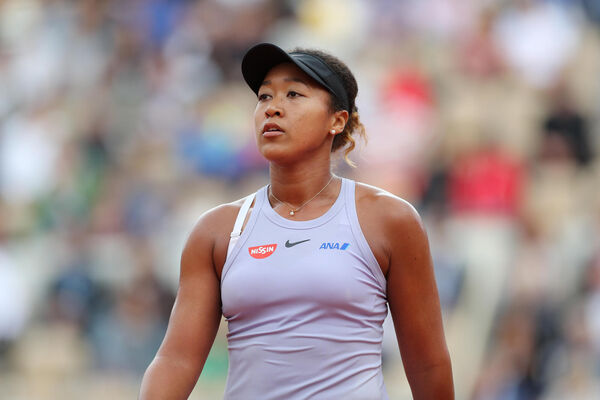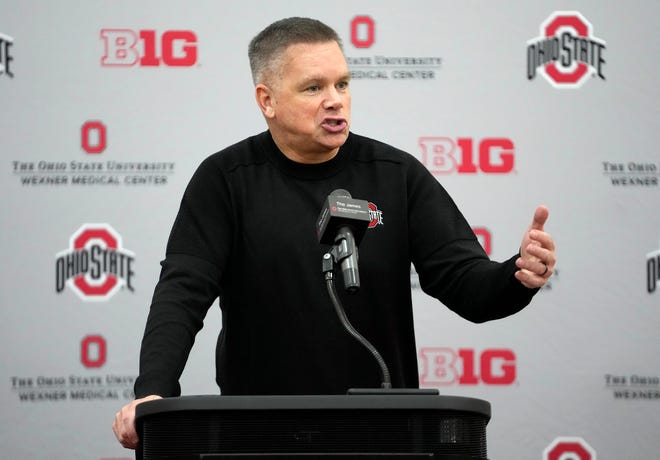– From The Loser, by Gay Talese
My brother tells a story almost forgotten to me until all the noise surrounding Naomi Osaka’s distinct lack of noise in Paris last week.
In the tragic aftermath of Mayo’s All-Ireland final loss to Meath in 1996, he emerged from the showers in Croke Park an emotionally broken man, to his place in the dressing room, a stage now strewn with the debris of butchered dreams. His towel, moments before perched on a bench, had fallen foul of the stampeding press, who had surrounded his teammate, the crestfallen giant Liam McHale.
Dictaphones at the ready, so rabid for soundbites from Mayo’s spiritual totem, they were oblivious to the truths around them. McHale, infamously sent off in a brawl that afternoon, did his best to muster words, while my (naked) brother did his best to dislodge his only towel from under the feet of the Ireland’s best sportswriters. He yanked so hard at one stage, his efforts drew a verbal rebuke from one of the group’s more established members.
Demoralised and defeated for the second time that fabled afternoon, he took his scolding, sat and waited, his crisp blue shirt off the hanger, now on his lap, saving his blushes.
As a teenager, this story mattered to me. It also had me slightly conflicted. Growing up, my heroes were not only those on the field — like my brother — but those thrusting the dictaphones underneath McHale’s chin, standing on my brother’s towel. Monday was just as important as Sunday. I loved the games but arguably loved reading about them more.
The absurdity of the dressing room scene sounds like an outtake from an Enda Walsh play (A Towel, in Two Acts), but, in the context of the Osaka case, is easily imaginable. Jobs had to be done. Deadlines met. Words written. Tragedies told. Towel or no towel.

A little under 12 months later, I was in Deer Park in Dublin, fulfilling my brotherly duty of football retrieval during a placekicking session. My role may have seemed inconsequential to the naked eye, but I knew its importance. You didn’t just collect the balls and kick them back out, you collected them and had to understand exactly where the next series of kicks would be taken from.
So, your delivery was quite important. These were not leisurely, carefree evenings spent gazing at cloudless skies. It was serious business. We were trying to win All-Irelands. Besides, I felt privileged in having a ringside seat to a certain kind of greatness.
This night was different to me, though, and not because it was in the build-up to an All-Ireland final with Kerry. I was used to that pressure. No, the difference was there was a third party joining us, Vincent Hogan of the Irish Independent, who would interview him for a finals preview. To Vincent and to my brother, this was just another act in the play, an accepted part of the silent contract between sportsman and journalist. Both went about their business.
I kept my distance but my nerves were frayed, I was snap-hooking deliveries I’d usually land in a phonebox. The journo, by his presence alone, had iced me. Thank God, I guess, it wasn’t me playing for Mayo. It was a morsel of a modicum of a sliver of a glimpse into the stresses of my brother’s world, and by extravagant extension, the world of Naomi Osaka.
Today, I feel I’ve looked at love — to quote Joni Mitchel — from both sides now. I felt the pain of any critical word ever penned about my brother perhaps just as acutely as he did, yet, there are days, now, that I pass a Galway footballer in a coffee shop and feel a chill, suddenly aware of a quip I may have buried deep in a piece two years ago.
As writers of sport, we understand readers want blood in the dirt. Glory, sure, but the slippier the mask your heroes wear, the more truth it will reveal. We want to see them cry when they fail because we cry. We will then hate them for it, just as we often hate ourselves. The spectacle is never enough. Not only do we want to see the gladiator fight, we want them interviewed as they’re fed to the lions.
“Does it hurt Maximus? How much?”
Just because Lee Harvey Oswald got shot live on television doesn’t mean all assassinations should be televised.
Saturday night, millions watched as golfer Jon Rahm was told he had tested positive for Covid-19, live on TV. You know, the virus that’s killed nearly four million people in little over a year.
The moment occurred at the edge of the 18th green, after he had shot 64 and led the tournament by six shots. Rahm’s towel was on the ground. The world stood on it.
Who to blame? Hemmingway? Updike? Mailer? Plimpton? Wright Thompson?
Many of them became more famous than their subjects. They became myth creators and kingmakers extraordinaire, and in doing so, produced some of the best nonfiction of the last century. In an infamous profile of the boxer, Floyd Patterson, called The Loser, Patterson told writer Gay Talese how he used to keep a fake beard, moustache, spare hat and glasses stashed in his kit bag, and how, when he lost to Sonny Liston in a first-round knockout, he put the disguise on right after the fight and wore it all the way from Chicago to New York, where he went straight to the airport.
“I didn’t care what plane I boarded,” he said. “I just looked up and saw this sign at the terminal reading ‘Madrid’, and so I got on that flight after buying a ticket.”
For the next five days, Patterson pretended he was an old man with a limp. “I began to actually think I was somebody else,” he said. “And it is nice, every once in a while, being somebody else.” What incredible, relatable insight into a champion. What a shame it would’ve been had it never been written, and we would never have understood how utterly human he was.
There is nothing binary about the relationship between press and sports stars, only the black ink on the white page. It will be ever thus. As long as both exist, one will need the other. It behooves us all to at least not trample upon the towel in the telling of the story.








